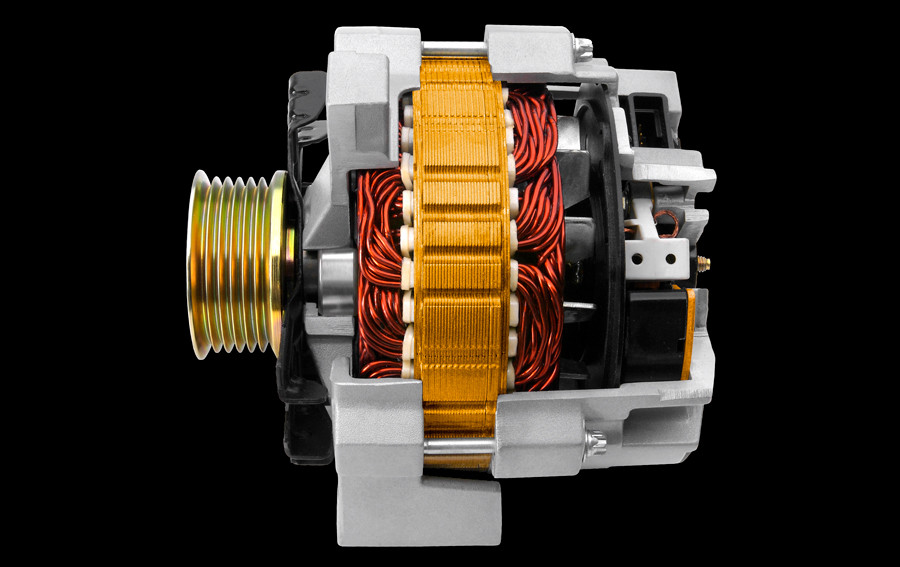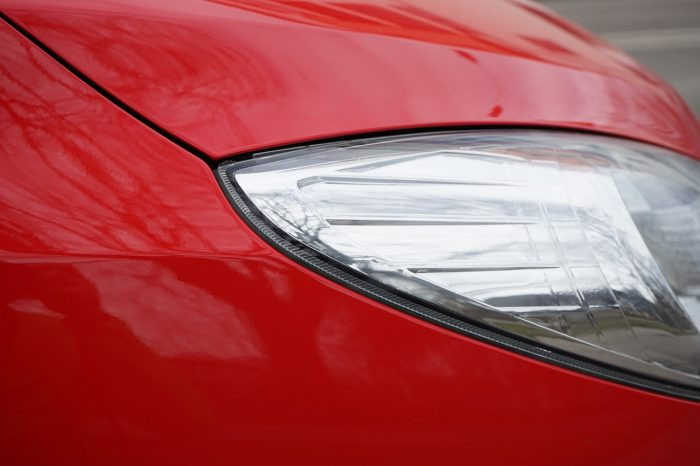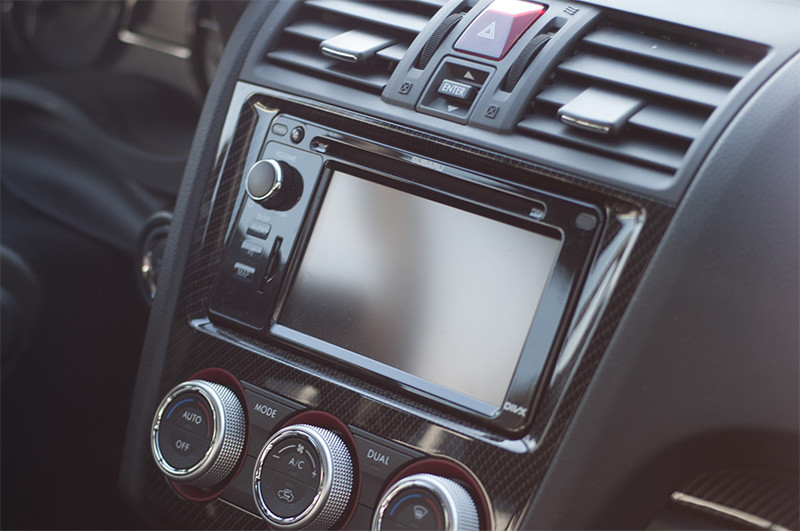How Much to Fix an Alternator in a Car: A Comprehensive Guide

Is your car’s electrical system acting up? Wondering how much to fix an alternator in a car? CARDIAGTECH.NET provides a detailed breakdown of alternator repair costs, common issues, and expert advice to keep your vehicle running smoothly. Learn about replacement options, labor costs, and preventative maintenance tips to save money and ensure reliable performance. Explore our wide range of automotive diagnostic tools and equipment at CARDIAGTECH.NET to identify alternator problems early.
1. Understanding the Alternator’s Vital Role
The alternator is a crucial component of your vehicle’s electrical system. It’s responsible for charging the battery and powering all the electrical components while the engine is running. These components include everything from the radio and power windows to the anti-lock braking system (ABS) and engine control modules. Without a functioning alternator, your car will eventually drain the battery and leave you stranded.
Consider the sheer number of electronic systems in a modern vehicle. Power windows, door locks, sunroofs, heated seats, and a multitude of sensors require a constant and reliable power supply. The anti-lock braking system alone can have wheel speed sensors at each wheel, an ABS control module, and an ABS pump, all demanding electricity to function correctly. This is where the alternator steps in, converting mechanical energy from the engine into electrical energy.
 Car Alternator
Car Alternator
The alternator utilizes power from the battery and enhances it to provide sufficient electricity for all of your car’s electrical requirements while the engine is operating. It also generates extra power to replenish the battery’s charge. The alternator’s magnetic rotor and copper windings generate alternating current (AC), which is then transformed into direct current (DC) by a series of diodes in the rectifier. DC electricity is essential for the operation of your vehicle’s devices. The voltage output is carefully regulated to prevent overcharging damage as well as problems from insufficient power.
2. Identifying the Symptoms of a Failing Alternator
Recognizing the signs of a failing alternator early can prevent more extensive damage and costly repairs. Several common symptoms indicate that your alternator might need attention. Here are some telltale signs:
- Illuminated Battery Light: This is often the first warning sign. The battery light on your dashboard usually indicates a charging problem. It could signal that the alternator is undercharging or overcharging, both conditions that can be caused by a faulty alternator.
- Dim or Flickering Lights: Inconsistent voltage from the alternator can cause your headlights and interior lights to appear dimmer than usual or flicker erratically.
- Burning Smells: A burning rubber smell could indicate a slipping belt on the alternator pulley, especially if the alternator is starting to seize. An electrical burning smell may point to an internal fault within the alternator itself.
- Unusual Electrical Issues: Low voltage caused by a failing alternator can lead to various electrical problems, such as slow power windows, a crackling or fading radio, and low fan speeds.
- Whirring or Whining Noises: A whirring or whining noise coming from under the hood could indicate worn or corroded alternator bearings, which can lead to a complete seizure of the alternator.
- Difficulty Starting the Car: A failing alternator may not adequately recharge the battery, leading to difficulty starting the car, especially in cold weather.
- Stalling: In some cases, a failing alternator can cause the engine to stall, particularly when electrical loads are high.
Early detection of these symptoms is crucial. Addressing a potential alternator issue promptly can prevent further damage to your vehicle’s electrical system and save you money on repairs. If you notice any of these signs, it’s time to consider getting your alternator checked. CARDIAGTECH.NET offers a range of diagnostic tools to help you pinpoint alternator problems quickly and efficiently. Contact us at +1 (641) 206-8880 for expert advice.
3. Factors Influencing the Cost to Fix an Alternator
Several factors can influence the cost of fixing an alternator in a car. Understanding these factors will help you budget for the repair and make informed decisions. The primary factors include:
- Vehicle Year, Make, and Model: The specific alternator required for your vehicle depends on its year, make, and model. Certain vehicles, especially those with specialized electrical systems or high-performance engines, may require more expensive alternators.
- Alternator Amperage: Alternators come in various amperage ratings, depending on the electrical demands of the vehicle. Higher amperage alternators, designed to power more electrical components, typically cost more.
- Mounting Style and Electrical Connections: The alternator must fit perfectly within your vehicle’s engine bay. Alternators with unique mounting styles or electrical connections may be more expensive due to their specific design.
- New vs. Remanufactured Alternator: You can choose between a brand-new alternator or a remanufactured one. Remanufactured alternators are typically less expensive, but their reliability may vary. New alternators offer greater assurance of longevity and performance.
- Warranty: The warranty offered with the alternator can affect the price. Alternators with longer warranties usually cost more upfront but provide greater peace of mind.
- Labor Costs: Labor costs can vary significantly depending on the mechanic’s hourly rate and the complexity of the alternator replacement. Some vehicles have alternators that are easily accessible, while others require more extensive labor.
- Location: The geographic location of the repair shop can also influence the cost. Repair shops in urban areas or regions with higher labor costs may charge more for alternator replacement.
- Availability of cores to rebuild: Alternators are either remanufactured or new, and the majority of the aftermarket is remanufactured. Rarer vehicles and options produce rarer alternators, which means there’s less cores coming back to rebuild, which means higher costs.
Considering these factors, it’s essential to obtain quotes from multiple repair shops to compare prices and services. CARDIAGTECH.NET can assist you in finding reliable diagnostic tools to assess your alternator’s condition before seeking professional repairs. For expert assistance, reach out to us at Whatsapp: +1 (641) 206-8880.
4. Average Cost to Replace an Alternator: A Detailed Breakdown
So, how much to fix an alternator in a car? The cost to replace an alternator typically ranges from $300 to $800, including parts and labor. However, this can vary based on the factors mentioned above. Here’s a more detailed breakdown:
| Component | Average Cost Range | Description |
|---|---|---|
| Alternator Part | $150 – $500 | The cost of the alternator itself, which varies based on the vehicle and whether it’s new or remanufactured. |
| Labor | $150 – $300 | The cost of the mechanic’s labor to remove the old alternator and install the new one. |
| Diagnostic Fees | $50 – $150 | Some shops charge a diagnostic fee to determine if the alternator is indeed the problem. |
| Taxes and Fees | $20 – $50 | Additional taxes and fees that may be added to the final bill. |
| Total Cost | $300 – $800 | The total estimated cost to replace an alternator, including parts, labor, and other fees. |
4.1. Alternator Part Costs
The cost of the alternator itself can vary widely. New alternators typically range from $200 to $500, while remanufactured alternators can be found for $150 to $350. Opting for a new alternator usually provides greater reliability and a longer lifespan.
4.2. Labor Costs
Labor costs for alternator replacement can vary depending on the vehicle and the accessibility of the alternator. Simpler replacements may take 1 to 2 hours, while more complex jobs can take 3 hours or more. Mechanic labor rates typically range from $75 to $150 per hour.
4.3. Additional Costs
In some cases, additional costs may arise during the alternator replacement process. For example, if the serpentine belt is worn or damaged, it may need to be replaced at the same time. Additionally, the battery may need to be tested or replaced if it has been significantly drained by the failing alternator.
To get an accurate estimate, it’s best to obtain quotes from multiple repair shops. CARDIAGTECH.NET can provide you with the diagnostic tools needed to assess the alternator’s condition and make informed decisions. Contact us at +1 (641) 206-8880 for expert advice and support.
5. New vs. Remanufactured Alternators: Which is Right for You?
When faced with an alternator replacement, one of the first decisions you’ll need to make is whether to opt for a new or remanufactured unit. Both options have their pros and cons, and the best choice depends on your budget, vehicle, and long-term goals.
5.1. New Alternators
Pros:
- Reliability: New alternators are manufactured with all-new components, offering the highest level of reliability and a longer lifespan.
- Warranty: New alternators typically come with a more comprehensive warranty, providing greater peace of mind.
- Performance: New alternators are designed to meet or exceed the original equipment manufacturer (OEM) specifications, ensuring optimal performance.
Cons:
- Cost: New alternators are generally more expensive than remanufactured units.
- Environmental Impact: Manufacturing new alternators requires more resources and energy, contributing to a larger environmental footprint.
5.2. Remanufactured Alternators
Pros:
- Cost: Remanufactured alternators are typically less expensive than new units, making them a budget-friendly option.
- Environmental Friendliness: Remanufacturing reuses existing components, reducing waste and conserving resources.
- Availability: Remanufactured alternators are often readily available for a wide range of vehicles.
Cons:
- Reliability: Remanufactured alternators may not be as reliable as new units, as some components have been previously used.
- Warranty: Remanufactured alternators typically come with a shorter warranty than new units.
- Performance: The performance of remanufactured alternators may vary depending on the quality of the remanufacturing process.
The decision between a new and remanufactured alternator depends on your individual needs and circumstances. If reliability and longevity are your top priorities, a new alternator is the best choice. If you’re on a tight budget and looking for an environmentally friendly option, a remanufactured alternator may be a suitable alternative. Before making a decision, be sure to research the reputation of the remanufacturer and carefully review the warranty terms.
6. Step-by-Step Guide to Replacing an Alternator
Replacing an alternator can be a challenging but rewarding DIY project. However, it’s essential to have the right tools, knowledge, and safety precautions in place. If you’re not comfortable working on your car’s electrical system, it’s best to leave this task to a professional mechanic. Here’s a general step-by-step guide:
- Gather Your Tools and Supplies:
- New or remanufactured alternator
- Socket set and wrenches
- Screwdrivers
- Multimeter
- Battery terminal cleaner
- Serpentine belt (if needed)
- Safety glasses and gloves
- Disconnect the Battery: Disconnect the negative (-) battery cable first, followed by the positive (+) cable. This will prevent electrical shorts and ensure your safety.
- Locate the Alternator: Consult your vehicle’s repair manual to locate the alternator. It’s typically mounted on the engine and driven by the serpentine belt.
- Remove the Serpentine Belt: Use a wrench to relieve tension on the belt tensioner, and then remove the serpentine belt from the alternator pulley.
- Disconnect Electrical Connections: Disconnect the electrical connectors and wires from the alternator. Be sure to label the wires to ensure proper reconnection.
- Remove the Alternator: Remove the bolts or nuts that secure the alternator to the engine bracket. Carefully remove the alternator from the vehicle.
- Install the New Alternator: Install the new or remanufactured alternator in the reverse order of removal. Be sure to tighten all bolts and nuts to the proper torque specifications.
- Reconnect Electrical Connections: Reconnect the electrical connectors and wires to the alternator, ensuring they are securely attached.
- Reinstall the Serpentine Belt: Reinstall the serpentine belt onto the alternator pulley, ensuring it’s properly seated and tensioned.
- Reconnect the Battery: Reconnect the positive (+) battery cable first, followed by the negative (-) cable.
- Test the Alternator: Start the engine and use a multimeter to check the alternator’s voltage output. It should be between 13.5 and 14.5 volts.
- Verify Proper Operation: Check all electrical components, such as lights, radio, and power windows, to ensure they are functioning properly.
Disclaimer: This is a general guide, and the specific steps may vary depending on your vehicle. Always consult your vehicle’s repair manual for detailed instructions and safety precautions. If you’re not comfortable performing this task yourself, seek professional assistance.
7. Common Problems Associated with Alternator Failure
Alternator failure can lead to a variety of problems affecting your vehicle’s electrical system and overall performance. Understanding these potential issues can help you diagnose alternator problems and take appropriate action. Here are some common problems associated with alternator failure:
- Battery Drain: A failing alternator may not adequately recharge the battery, leading to a gradual drain. This can result in difficulty starting the car or a complete failure to start.
- Electrical Component Malfunctions: Insufficient voltage from the alternator can cause various electrical components to malfunction, such as dim lights, slow power windows, and a crackling radio.
- Engine Stalling: In some cases, a failing alternator can cause the engine to stall, particularly when electrical loads are high.
- Overheating: An overworking alternator can overheat, leading to damage and premature failure.
- Computer Module Damage: Overcharging from a faulty alternator can damage sensitive computer modules in the vehicle, leading to costly repairs.
- Reduced Fuel Efficiency: A struggling alternator can put extra strain on the engine, reducing fuel efficiency.
Addressing alternator problems promptly can prevent these issues and maintain your vehicle’s reliability. CARDIAGTECH.NET offers a range of diagnostic tools to help you identify alternator problems early and prevent further damage. Contact us at +1 (641) 206-8880 for expert assistance.
8. Tips for Extending the Life of Your Alternator
Extending the life of your alternator can save you money and prevent unexpected breakdowns. Here are some practical tips to help you maximize the lifespan of your alternator:
- Regular Battery Maintenance: A healthy battery reduces the workload on the alternator. Regularly check and clean your battery terminals, and replace the battery when it reaches the end of its lifespan.
- Avoid Excessive Electrical Loads: Minimize the use of high-demand electrical components, such as headlights, air conditioning, and the radio, when not needed.
- Proper Serpentine Belt Maintenance: A worn or loose serpentine belt can cause the alternator to work harder and overheat. Inspect and replace the serpentine belt as recommended in your vehicle’s maintenance schedule.
- Avoid Deep Battery Discharges: Repeatedly draining the battery can put excessive strain on the alternator. Avoid leaving lights on or accessories running when the engine is off.
- Regular Vehicle Maintenance: Follow your vehicle’s recommended maintenance schedule to ensure all systems are functioning properly and to identify potential problems early.
- Professional Inspections: Have your alternator and electrical system inspected by a qualified mechanic during routine maintenance visits.
By following these tips, you can help extend the life of your alternator and keep your vehicle running smoothly.
9. Can You Drive with a Bad Alternator? Weighing the Risks
Driving with a bad alternator is generally not recommended, as it can lead to various problems and potentially leave you stranded. While a short drive may be possible in some situations, it’s essential to understand the risks involved.
- Battery Depletion: A failing alternator may not adequately recharge the battery, leading to a gradual drain. Eventually, the battery will be depleted, and the car will stall.
- Electrical System Malfunctions: Insufficient voltage from the alternator can cause various electrical components to malfunction, such as lights, power windows, and the radio.
- Engine Stalling: In some cases, a failing alternator can cause the engine to stall, particularly when electrical loads are high.
- Potential Damage to Other Components: Overcharging from a faulty alternator can damage sensitive computer modules in the vehicle, leading to costly repairs.
If you suspect your alternator is failing, it’s best to have it inspected by a qualified mechanic as soon as possible. If driving is unavoidable, minimize electrical loads and drive directly to a repair shop.
10. When to Consult a Professional Mechanic
While some alternator issues can be addressed with DIY solutions, there are certain situations where it’s best to consult a professional mechanic.
- Lack of Experience: If you’re not comfortable working on your car’s electrical system, it’s best to leave alternator replacement to a professional.
- Complex Electrical Problems: If you’re experiencing complex electrical problems that you can’t diagnose, a professional mechanic can use specialized tools and knowledge to identify the root cause.
- Uncertainty About the Diagnosis: If you’re not sure whether the alternator is the problem, a professional mechanic can perform a thorough inspection to confirm the diagnosis.
- Warranty Concerns: If your vehicle is still under warranty, having the alternator replaced by a professional mechanic can ensure that the warranty remains valid.
- Safety Concerns: Working on a car’s electrical system can be dangerous if proper safety precautions are not followed. A professional mechanic has the training and equipment to perform alternator replacement safely.
Don’t hesitate to seek professional assistance when needed. A qualified mechanic can accurately diagnose alternator problems and perform the necessary repairs to keep your vehicle running smoothly. CARDIAGTECH.NET can assist you in finding reliable diagnostic tools to assess your alternator’s condition before seeking professional repairs. For expert assistance, reach out to us at Whatsapp: +1 (641) 206-8880.
11. The Importance of Regular Alternator Testing and Maintenance
Regular alternator testing and maintenance are crucial for ensuring your vehicle’s reliability and preventing unexpected breakdowns. By proactively monitoring your alternator’s performance, you can identify potential problems early and take corrective action.
11.1. Testing the Alternator
Testing the alternator involves measuring its voltage output and checking for any signs of malfunction. This can be done using a multimeter or a specialized alternator tester. The typical voltage output of a properly functioning alternator should be between 13.5 and 14.5 volts.
11.2. Maintenance Tips
- Visual Inspections: Regularly inspect the alternator for signs of damage, such as cracks, leaks, or corrosion.
- Serpentine Belt Maintenance: Ensure the serpentine belt is in good condition and properly tensioned.
- Battery Maintenance: Maintain a healthy battery to reduce the workload on the alternator.
- Professional Inspections: Have your alternator inspected by a qualified mechanic during routine maintenance visits.
By incorporating regular alternator testing and maintenance into your vehicle care routine, you can help extend its lifespan and prevent costly repairs.
12. Choosing the Right Alternator for Your Vehicle
Selecting the correct alternator for your vehicle is vital for ensuring optimal performance and reliability. A mismatched alternator can lead to various problems, including electrical system malfunctions, reduced fuel efficiency, and premature failure.
12.1. Key Considerations
- Vehicle Year, Make, and Model: The alternator must be specifically designed for your vehicle’s year, make, and model.
- Amperage Rating: The alternator’s amperage rating should match or exceed the original equipment manufacturer (OEM) specifications.
- Mounting Style: The alternator must have the correct mounting style to fit properly in your vehicle’s engine bay.
- Electrical Connections: The alternator’s electrical connections must be compatible with your vehicle’s wiring harness.
- Warranty: Choose an alternator with a comprehensive warranty for added peace of mind.
12.2. Research and Consultation
Consult your vehicle’s repair manual or a qualified mechanic to determine the correct alternator specifications. When purchasing a replacement alternator, be sure to provide the vendor with accurate information about your vehicle.
13. How CARDIAGTECH.NET Can Help You Maintain Your Alternator
At CARDIAGTECH.NET, we understand the importance of a properly functioning alternator for your vehicle’s reliability and performance. That’s why we offer a wide range of diagnostic tools and equipment to help you maintain your alternator and electrical system.
13.1. Diagnostic Tools
Our selection of diagnostic tools includes multimeters, battery testers, and alternator testers, allowing you to accurately assess your alternator’s condition and identify potential problems early.
13.2. Expert Advice
Our team of experienced technicians can provide expert advice and support to help you diagnose alternator problems and choose the right replacement components.
13.3. Quality Products
We offer a wide range of high-quality alternators and electrical components from trusted brands, ensuring reliable performance and long-lasting durability.
13.4. Contact Us
For expert assistance with your alternator maintenance needs, contact CARDIAGTECH.NET today. You can reach us at 276 Reock St, City of Orange, NJ 07050, United States, Whatsapp: +1 (641) 206-8880, or visit our website at CARDIAGTECH.NET.
14. The Future of Alternator Technology: Innovations to Watch
Alternator technology continues to evolve, with ongoing innovations aimed at improving efficiency, reliability, and performance. Here are some trends to watch in the future of alternator technology:
- Smart Alternators: Smart alternators use advanced control algorithms to optimize voltage output and reduce energy consumption.
- Integrated Starter-Alternators: These systems combine the functions of the starter and alternator into a single unit, reducing weight and improving fuel efficiency.
- High-Efficiency Designs: New alternator designs focus on reducing internal friction and improving cooling to enhance efficiency.
- Advanced Materials: The use of advanced materials, such as lightweight composites and high-performance magnets, can improve alternator performance and durability.
- Regenerative Braking Systems: These systems capture energy during braking and use it to recharge the battery, reducing the load on the alternator.
As technology continues to advance, alternators will become more efficient, reliable, and integrated into the overall vehicle system.
15. Understanding Alternator Warranties and What They Cover
When purchasing a new or remanufactured alternator, it’s essential to understand the warranty terms and what they cover. A warranty provides protection against defects in materials and workmanship, giving you peace of mind and financial security.
15.1. Types of Warranties
- Limited Warranty: A limited warranty covers specific parts or components for a specified period.
- Full Warranty: A full warranty covers the entire product for a specified period, including parts and labor.
- Lifetime Warranty: A lifetime warranty covers the product for as long as the original purchaser owns it.
15.2. What Warranties Typically Cover
- Defects in materials and workmanship
- Premature failure of the alternator
- Repair or replacement of the alternator
15.3. What Warranties Typically Don’t Cover
- Damage caused by misuse or abuse
- Damage caused by improper installation
- Damage caused by external factors, such as accidents or natural disasters
- Labor costs (unless specified in the warranty terms)
Before purchasing an alternator, carefully review the warranty terms and conditions to understand the coverage and limitations. Keep your purchase receipt and warranty documentation in a safe place.
16. Debunking Common Myths About Alternators
There are several common myths and misconceptions surrounding alternators. Here are some of the most prevalent myths debunked:
- Myth: You can drive indefinitely with a bad alternator.
- Fact: A failing alternator will eventually drain the battery, leaving you stranded.
- Myth: All alternators are the same.
- Fact: Alternators vary in size, amperage, and mounting style, depending on the vehicle.
- Myth: You can easily rebuild an alternator at home.
- Fact: Rebuilding an alternator requires specialized tools and knowledge.
- Myth: A new alternator is always better than a remanufactured one.
- Fact: A high-quality remanufactured alternator can be just as reliable as a new one.
- Myth: Alternators never need maintenance.
- Fact: Regular alternator testing and maintenance can help extend its lifespan.
By understanding the facts about alternators, you can make informed decisions about their care and maintenance.
17. How to Find a Reputable Mechanic for Alternator Repair
Finding a reputable mechanic for alternator repair is crucial for ensuring quality workmanship and fair pricing. Here are some tips for finding a trustworthy mechanic:
- Ask for Recommendations: Ask friends, family, and colleagues for recommendations.
- Check Online Reviews: Read online reviews on websites like Google, Yelp, and Angie’s List.
- Look for Certifications: Look for mechanics who are certified by organizations like ASE (Automotive Service Excellence).
- Get Multiple Quotes: Obtain quotes from multiple mechanics and compare prices and services.
- Ask About Warranty: Ask about the mechanic’s warranty on parts and labor.
- Trust Your Gut: If something doesn’t feel right, trust your instincts and find another mechanic.
18. Exploring Alternative Solutions to Alternator Replacement
While alternator replacement is often the most effective solution for a failing alternator, there are some alternative options to consider:
- Alternator Repair: In some cases, it may be possible to repair the alternator instead of replacing it. This may involve replacing worn or damaged components, such as bearings, brushes, or diodes.
- Battery Replacement: If the battery is old or damaged, replacing it may resolve some of the symptoms associated with a failing alternator.
- Electrical System Diagnosis: A thorough electrical system diagnosis can help identify other potential problems that may be contributing to the alternator’s failure.
Before opting for alternator replacement, discuss these alternative solutions with your mechanic to determine the best course of action.
19. The Economic Impact of a Failing Alternator
A failing alternator can have a significant economic impact on your vehicle and your wallet. In addition to the cost of repair or replacement, a failing alternator can lead to:
- Reduced Fuel Efficiency: A struggling alternator can put extra strain on the engine, reducing fuel efficiency.
- Electrical System Damage: Overcharging from a faulty alternator can damage sensitive computer modules in the vehicle, leading to costly repairs.
- Unexpected Breakdowns: A failing alternator can leave you stranded, resulting in towing fees and inconvenience.
- Lost Time: Dealing with alternator problems can take time away from work or other activities.
Preventive maintenance and prompt repair can help minimize the economic impact of a failing alternator.
20. Staying Safe During Alternator Repair: Essential Precautions
Alternator repair can be dangerous if proper safety precautions are not followed. Here are some essential safety precautions to keep in mind:
- Disconnect the Battery: Always disconnect the battery before working on the electrical system.
- Wear Safety Glasses and Gloves: Protect your eyes and hands from injury.
- Use the Right Tools: Use the correct tools for the job to avoid damaging components.
- Follow Instructions: Follow the instructions in your vehicle’s repair manual.
- Work in a Well-Ventilated Area: Avoid working in enclosed spaces where fumes can accumulate.
- Seek Professional Assistance: If you’re not comfortable performing the repair yourself, seek professional assistance.
FAQ: Frequently Asked Questions About Alternator Repair
Here are some frequently asked questions about alternator repair:
- How much does it cost to replace an alternator? The cost to replace an alternator typically ranges from $300 to $800, including parts and labor.
- How long does an alternator last? An alternator typically lasts between 5 and 8 years, or 80,000 to 150,000 miles.
- What are the symptoms of a bad alternator? Common symptoms include a illuminated battery light, dim or flickering lights, burning smells, and unusual electrical issues.
- Can I drive with a bad alternator? Driving with a bad alternator is generally not recommended, as it can lead to various problems and potentially leave you stranded.
- Should I buy a new or remanufactured alternator? The decision depends on your budget and priorities. New alternators offer greater reliability, while remanufactured alternators are more affordable.
- Can I replace an alternator myself? Replacing an alternator can be a DIY project, but it requires the right tools and knowledge.
- How can I extend the life of my alternator? Regular battery maintenance, avoiding excessive electrical loads, and proper serpentine belt maintenance can help extend the life of your alternator.
- What does an alternator warranty cover? An alternator warranty typically covers defects in materials and workmanship.
- How do I find a reputable mechanic for alternator repair? Ask for recommendations, check online reviews, and look for certifications.
- What are some alternative solutions to alternator replacement? Alternator repair, battery replacement, and electrical system diagnosis are some alternative solutions.
We hope this comprehensive guide has answered your questions about how much to fix an alternator in a car. Remember, regular maintenance and prompt attention to alternator problems can save you money and keep your vehicle running smoothly. For all your automotive diagnostic needs, trust CARDIAGTECH.NET. Visit us at 276 Reock St, City of Orange, NJ 07050, United States, contact us via Whatsapp at +1 (641) 206-8880, or explore our website at CARDIAGTECH.NET.







